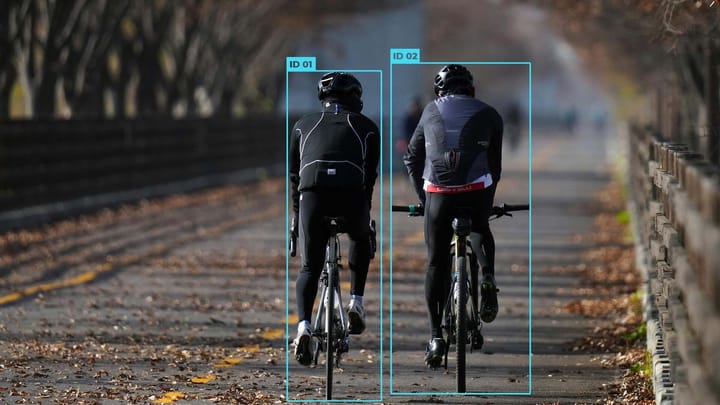Top Work-from-Home Data Annotation Jobs in 2024

Imagine shaping the future of tech from your couch. In 2024, work-from-home data annotation jobs pay from $15 to $70 an hour. This booming field is key for creating tomorrow's AI, letting you have a big part in the digital world—all while in pajamas. With precision and expertise, top jobs like ML Data Operations Leads can make $117,000 to $350,000 a year.
Remote work opportunities are everywhere, from Alpharetta, Georgia, to Columbus, Ohio. Data annotation experts are wanted for their skills in project management tools, data analysis software, and annotation platforms. These skills are vital for making the AI training data that teaches machine learning models. In 2023, these online jobs aren't just growing; they're changing how we work and live.
Key Takeaways
- Hourly rates for data annotation roles are both competitive and variable, reflecting the level of expertise required.
- From the comfort of home, it's possible to secure a full-time or contract-based role with salaries that can compete with traditional office jobs.
- Remote data annotation not only offers flexibility but also the opportunity to contribute to significant technological advancements in AI.
- Critical skills for the field include proficiency in specialized software and a minimum of 2 years of relevant experience for many roles.
- Understanding the scope of the data annotation market is key to navigating this growing field and securing lucrative remote work opportunities.
The Growing Demand for Data Annotation Jobs from Home
The job landscape is changing, especially with data annotation growth for home-based work. The advancement of AI technologies has increased the demand for accurate AI training data annotation. This need makes remote data labeling a great career choice for many.
The Role of Data Annotation in AI Development
Data annotation is key to AI. It creates datasets that help algorithms recognize patterns. This detailed task is vital not only for basic AI functions. It's also critical for complex uses in healthcare, automotive, and public safety sectors.
This first step ensures AI systems work accurately and efficiently. It opens doors to innovations that could change our daily lives.
How to Identify High-Paying Data Annotation Gigs
Looking for top-paying online annotation jobs in today's digital world? Knowing where to find them can boost your earnings. With more demand for machine learning and AI, skilled data annotators are in demand. They help make AI training more effective. Here's how to spot the best opportunities.
First, know the scene of work from home data tagging jobs. Big names like Expertia AI, Cognitive Collective, and Motive offer good pay. Some annotators make $25 to $30 per hour. Checking job sites for remote tech roles often shows even better-paying jobs.
Also, use networks and advice from platforms like DataAnnotation.tech, which has over 100,000 members. Talk to those who've moved from other careers or grown in data annotation. They can share how to get well-paying jobs.
Annotators good with big datasets or specific tools can find top gigs on company sites. The trick is to keep improving your skills and knowing the latest industry needs. Firms want annotators who label data accurately. This is key for creating reliable AI models.
Think about the job demands and the competition. The best-paying jobs need you to be very detailed and follow complex rules carefully. Whether it's a part- or full-time job, these gigs require dedication. They are best for those serious about growing in machine learning and AI.
By checking out different platforms, talking with community folks, and always getting better at data annotation, you can tap into great online tasks. This doesn't just boost your pay but also helps advance AI technology. It makes your role critical in the digital age.
Evaluating Full-Time vs. Contract Data Annotation Roles
Professionals in data annotation face a choice: full-time work or contract roles. Each has its pros and cons, tailored to various career goals and lifestyles. This is even more relevant for those interested in remote work.
Flexibility and Freedom of Contractual Data Annotation
Contract roles in data annotation are all about flexibility. They let people pick projects that fit their schedule and interests. It's great for managing various projects or balancing other commitments. Contractors with special skills can earn between $80K and $200K annually, depending on the demand in their field.
Full-time positions provide job security and career growth. Contract roles, on the other hand, offer flexibility and the chance for high earnings per project. This is especially true for experts focusing on specific areas.
Making the choice between full-time and contract roles depends on your career goals, how much you value flexibility, and if you want job security. Successful data annotators use their skills—like precision, consistency, and specialized knowledge—to advance their careers. This is true whether they work in an office or remotely.
Data annotation jobs from home
Diving into the world of remote data labeling, work from home data tagging, and online annotation tasks opens up many opportunities. You can work with technology right from your home. These positions are crucial for developing AI and machine learning, demanding focus and an eye for detail.
As more companies go digital, there's a growing need for people who can accurately label data. You might find yourself tagging huge datasets, creating tools for better annotation, or working on special projects. These could involve data for VR and AR tech.
The variety and flexibility of these roles are appealing. Let's look at what they offer in pay and job structure:
- Starting hourly wages for newcomers in remote data labeling can be around $20. More expert roles can earn up to $66 per hour.
- Full-timers may get benefits like health insurance and retirement plan contributions. Meanwhile, contractors might enjoy higher pay per hour and flexible schedules.
- In places like the US, UK, and Canada, you can find many remote work options. These range from part-time tasks to full-time jobs.
- For more technical work, certifications like NATA might be needed. They show you're skilled and knowledgeable in your field.
- Some companies might even help pay for your home office setup. This ensures you have a professional space to work in.
If you're after flexibility and meaningful work, look into data annotation jobs from home. They allow you to work from anywhere and be part of exciting tech advancements.
Industry Standards for Data Annotation Job Salaries
The field of data annotation is growing fast. Knowing about data annotation job salaries and payment ranges for remote data labeling jobs is key. Research on pay trends in data annotation shows salaries vary incredibly highly by job role and location. High-cost areas don't necessarily pay more so you have to be more discerning while looking.
Negotiating Your Salary in Data Annotation Fields
When you're ready to talk salary in data annotation, knowing industry standards helps you fight for what you deserve. The demand for skilled annotators is rising, and so is the competition. Improve your skills in fields like natural language processing to boost your bargaining power. Showing you're good with complex data and can deliver quality work may get you higher pay.
What It Takes to Excel at Online Annotation Tasks
To be great at online annotation tasks, you must know remote annotator skills well. This job needs you to notice small details and use digital tools well for data quality assurance. Here are the key things for doing well in this growing work area.
Being good at online annotation means you can handle and understand data well. More companies are using AI, which means they need accurate data annotation more than ever. It's very important to have high-quality data because the success of AI depends on it.
- Understand the linguistic and cultural nuances if working with multilingual datasets.
- Maintain rigorous standards of data confidentiality and integrity.
- Develop an analytical approach to sorting and labeling data effectively.
Navigating the World of Freelance Data Labeling
The need for skilled freelance data labeling professionals is at an all-time high with AI's growth. This job lets people work on AI projects on their own terms. Here, we explore how freelancers can excel in this field.
Platforms for Freelance Data Annotators
Many platforms connect new freelancers with data labeling jobs. These sites offer a wide range of projects and the chance to handle several tasks at once. This way, you can work for different bosses and boost your earnings.
How to Build a Reputation in Freelancing for Data Annotation
To succeed in freelancing, you must deliver top-notch work. The accuracy of your data labeling affects AI performance directly. Being on time and following guidelines builds trust, opening doors to better jobs and steady work.
Knowing various annotation tools is essential as a freelancer. Being open to learning new things will boost your career in this fast-changing area.
| Key Skill | Description | Importance |
|---|---|---|
| Attention to Detail | Crucial for ensuring data accuracy. | High |
| Technical Proficiency | Ability to use different annotation tools. | High |
| Time Management | Essential for meeting tight deadlines. | High |
| Organizational Thinking | Helps in managing multiple tasks effectively. | Medium |
| Continuous Learning | Necessary for staying competitive. | High |
Being active on well-known platforms can make big companies notice you. Remember, your role is crucial in shaping AI's future. Dive into freelancing for data labeling and discover your potential!
Getting Started with Crowdsource Data Annotation Platforms
Starting with crowdsource data annotation platforms is a great opportunity. It's perfect for those interested in AI data annotation. You can either boost your income or start a new career in the growing field of artificial intelligence.
Remote data labeling platforms let you work from home with flexible hours. The steps to begin are simple. Just sign up, finish a short training, and start doing online annotation tasks.
| Platform | Type of Tasks | Matching Criteria | Potential Earnings |
|---|---|---|---|
| Amazon Mechanical Turk (MTurk) | Image Labeling, Text Classification, Audio Transcription | First-come, first-served | Varies by task complexity |
| Appen | Data Annotation, Survey Participation, Linguistic Analysis | Skills, Experience, Expertise | According to task intricacy and duration |
| Lionbridge | Technical Writing, Video and Software Localization, Translation | Project-specific requirements | Competitive rates based on task nature |
To do well on these platforms, focus on being accurate and consistent with online annotation tasks. This way, you'll ensure high-quality data for AI. Plus, you're more likely to get better-paying jobs and build a strong profile.
Remember, the effort you put into remote data labeling helps advance AI technology. Every task you complete improves AI systems in various fields. So, by joining crowdsource data annotation, you're earning and also being part of an exciting tech journey.
Technical Requirements for Work-from-Home Data Tagging
The world of AI and machine learning is growing fast. This makes the job of tagging data from home very important. With more people working remotely, it’s key to know the technical requirements for data tagging. You'll need good internet and to know how to use essential annotation software. These tools let you do important AI work right from your house.
Achieving High Data Quality from Home
To give out top-notch data from home, focus and striving for the best is a must. Sites like DataAnnotation.tech, with over 100,000 members, show how big this can be. People share success stories of big achievements in AI work. By following thorough guidelines and giving correct data, you help build smarter AI. This opens up new chances in tech.
FAQ
What are the most popular data annotation jobs from home in 2024?
Some top remote data annotation jobs are helping to prepare data for AI, reviewing and labelling datasets, and working on projects for computer vision and machine learning.
How is data annotation contributing to AI development?
Data annotation provides the labeled data needed for AI to learn. This helps AI systems perform tasks like recognizing images, processing language, and making decisions on their own.
Why do companies prefer remote data annotators?
Companies like remote workers for their flexibility and cost savings. Working remotely also lets companies find talent worldwide and grow quickly without limits on location.
How can I find high-paying data annotation gigs?
To find high-paying gigs, look at companies paying well in AI, data strategy, and project development. Use job platforms and company sites to find roles that fit your skills.
What are the advantages of full-time data annotation employment?
Working full-time provides job stability, steady pay, and benefits. These can include healthcare, training to get better at your job, and chances to move up in the company.
What are the pros of contractual data annotation roles?
Contract jobs give you more control over your schedule and choice of projects. They work well for those who like variety or prefer working on specific tasks.
Are work-from-home data tagging and online annotation tasks viable remote work opportunities?
Yes, these jobs are good for remote work. They let you be flexible and work on advanced AI projects from anywhere, as long as you have good internet.
What should I understand about payment ranges for remote data labeling jobs?
Know that pay can vary a lot, depending on your experience, the task's difficulty, and the industry rates. Beginners may earn hourly, while experts can make much more.
How do I negotiate my salary in the field of data annotation?
To negotiate pay, know what's typical in the field and be clear about your experience and skills. Show how you've helped with AI and your data annotation know-how.
What does it take to excel at online annotation tasks?
Doing well in online annotation means being very careful, knowing the tools and software well, having a systematic way to look at data, and sometimes understanding linguistics for language projects.
Where can freelance data annotators find platforms for gigs?
Freelancers can find work on remote job sites, tech job boards, AI industry sites, and platforms specializing in data annotation.
How can I build a reputation in freelancing for data annotation?
Build a good reputation by doing quality work on time, talking well with clients, and showing deep knowledge in your area of data annotation.
What are the first steps to start working on crowdsource data annotation projects?
To start, sign up on crowdsource sites, do any needed training, and get to know the work and standards for projects you're interested in.
What technical equipment do I need for work-from-home data tagging?
You'll need a reliable computer and internet. You might also need specific tools or software based on your project's needs.
How can I ensure high data quality while working from home?
To keep data quality high, stick to the annotation guidelines closely, pay attention to details, and use the right tools to keep your work consistent and accurate.



Comments ()